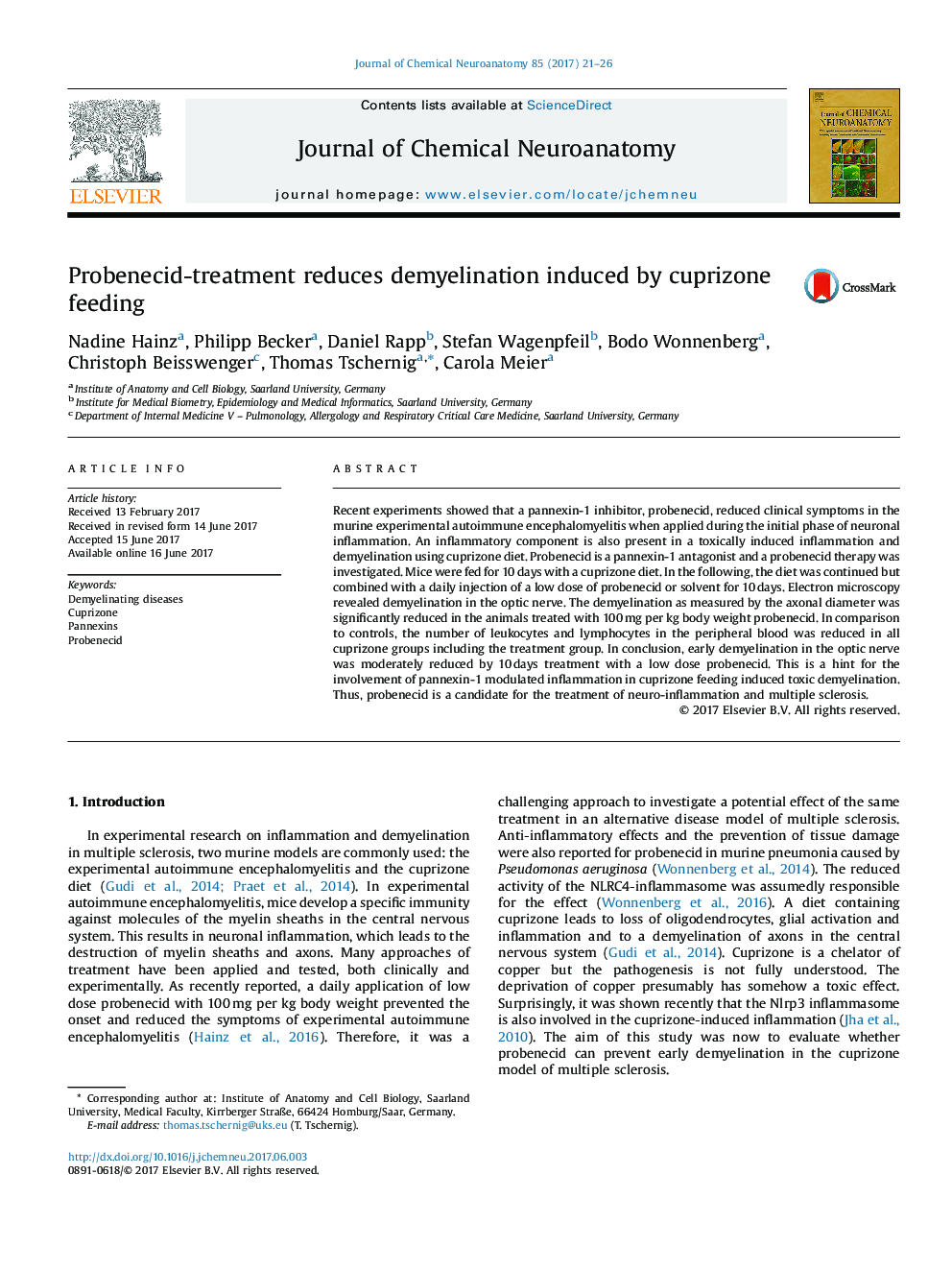| Article ID | Journal | Published Year | Pages | File Type |
|---|---|---|---|---|
| 5512673 | Journal of Chemical Neuroanatomy | 2017 | 6 Pages |
â¢This study showed for the first time a significant demyelination of the optic nerve in mice after cuprizone feeding.â¢Demyelination occurred already after three weeks of 0.2% cuprizone diet.â¢A moderate but significant deterioration of demyelination was observed by 10 days treatment with a low dose probenecid. Probenecid is an old drug used for the therapy of gout. It acts anti-inflammatory by blocking pannexin-1.â¢Probenecid is a candidate for further research in the treatment of multiple sclerosis.
Recent experiments showed that a pannexin-1 inhibitor, probenecid, reduced clinical symptoms in the murine experimental autoimmune encephalomyelitis when applied during the initial phase of neuronal inflammation. An inflammatory component is also present in a toxically induced inflammation and demyelination using cuprizone diet. Probenecid is a pannexin-1 antagonist and a probenecid therapy was investigated. Mice were fed for 10Â days with a cuprizone diet. In the following, the diet was continued but combined with a daily injection of a low dose of probenecid or solvent for 10Â days. Electron microscopy revealed demyelination in the optic nerve. The demyelination as measured by the axonal diameter was significantly reduced in the animals treated with 100Â mg per kg body weight probenecid. In comparison to controls, the number of leukocytes and lymphocytes in the peripheral blood was reduced in all cuprizone groups including the treatment group. In conclusion, early demyelination in the optic nerve was moderately reduced by 10Â days treatment with a low dose probenecid. This is a hint for the involvement of pannexin-1 modulated inflammation in cuprizone feeding induced toxic demyelination. Thus, probenecid is a candidate for the treatment of neuro-inflammation and multiple sclerosis.
